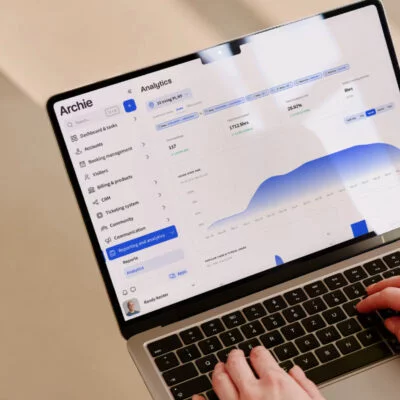In this article you will find:
This article is part of the school of coworking course through Archie. Make sure to check out the other articles to learn more about how to start a coworking space business.
You found the perfect place to set up your coworking business, great! Now you have to start thinking about your lease agreement – daunting, we know.
Lease negotiations with a landlord can be disorienting, to say the least so it is critical that you familiarize yourself with the steps involved in leasing a commercial space before you get started.
This article will take you through how to negotiate a commercial lease, what to look for, and what to avoid so that you are adequately prepared as you embark on this next step.
1. Elements of a Commercial Lease
All legally binding documents are fundamentally elaborate and complex, and commercial lease agreements are no exception to this rule.
There is more than one type of commercial lease at your disposal but before we delve into the details of each type it is important that you familiarize yourself with the main components found in commercial lease agreements.
1.1 Lease term and base rent
Lease term
The lease term states the duration of the lease with a specific beginning and ending date. A lease period can go from several months to several years, so be mindful when deciding on the lease term.
Remember that you are legally bound to respect the terms of the lease agreement for the entire duration of the term regardless of occupation. It is also worthwhile to note that the lease term beginning date is not necessarily the occupancy date.
Base rent
Sometimes referred to as net or minimum rent, the base rent is a fixed monthly amount to be paid to the landlord.
Your future landlord potentially already has established a base term for the leasing of the space, but don’t be alarmed if the number is too high. Base terms are frequently negotiated down as we will see later in the article.
1.2 Escalations and CAM
Escalations
Escalation clauses are extremely important. They dictate the landlord’s allowances for periodical increments on the net rent.
Escalations are usually done yearly and represent a percentage of the base rent. Your landlord should provide you with a schedule for these increments so that you know exactly how much higher the rent will be for every year you are leasing the space.
CAM (common area maintenance)
Common area maintenance concerns the financial responsibility of the tenant for any of the building’s shared amenities.
Parking, shared bathrooms, mailing room, and outdoor space are all examples of additional expenses tied to CAM. The more amenities, the higher the amount is likely to be so really consider what your needs vs. your wants are.
1.3 Rent abatement and tenant improvements
Rent abatement
In order to attract tenants, landlords will sometimes offer abatements as an incentive to rent their space. During this period tenants are exempt from the rent but can occupy the leased space all the same.
Rent abatements are highly variable. One landlord might concede to waiving the first few months of rent but keep the tenant responsible for any other additional costs while another might wave fewer months of rent and also agree to take financial responsibility for additional costs.
Tip: the more square footage you are using, the more you can negotiate this term. It is not uncommon for big coworking operators to successfully negotiate up to 8 months of free rent on a lease term of 10 to 15 years.
Careful utilization of this clause could have a great impact on your overall lease agreement.
Tenant improvements
In some instances, commercial leases include a tenant improvement, or TI, clause. This clause can be negotiated ahead of time and legally binds the landlord to pay out the predetermined monetary sum to the tenant to cover some or all construction costs. Typically, landlords will give lessees up to $30 per square foot on a 10-year lease term, some might give more or less than that, and some none at all.
1.4 Sublease clause
This clause is one to pay close attention to, specifically when looking to lease a space for a coworking business.
Some lease agreements will include a subleasing clause in which it is stated that the landlord must approve anyone who is looking to sublet your space or part of your space.
Evidently, in a coworking office scenario, this could be a deal-breaker. As the operator, you don’t want the landlord of the building to have the authority to turn away your future members, so be vigilant with this clause.
2. Types of Commercial Leases
Commercial leases are not as straightforward as residential leases and, as we’ve established earlier, there is more than one type of commercial lease that exists.
To keep things as simple as possible and avoid confusion, we will focus on the three most likely to be relevant for this purpose.
Consulting examples of commercial leases online to get acquainted with the different formats is a good idea but you should still call upon a broker or attorney to assist you with any lease-related affairs.
Use the links below to look at commercial leases examples:
2.1 Gross lease
A full-service lease, also named gross lease, is perhaps the most basic out of the bunch.
In this type of lease, the tenant pays nothing other than the fixed monthly rent. Consequently, the landlord is financially responsible for additional costs such as property taxes and insurance, any costs related to the upkeep or updating of the building, etc.
This lease is very predictable which makes for an appealing option. That being said, due to the nature of the lease, you can anticipate the fixed monthly rent to be significantly higher than in other types of commercial leases. For this reason, gross leases are not as commonly used.
2.2 Net lease
In this type of lease, similarly to a full-service lease, the tenant is responsible for a monthly fixed base rent but is also responsible for a portion of the additional expenses including property taxes, insurance, and maintenance costs.
Usually, how much square footage is being rented by the lessee is used to determine the percentage of the costs they will be liable for.
N lease, NN lease, and NNN lease
You should also be aware that a net lease is sometimes referred to as a single, double, or triple net lease depending on how many additional costs the tenant will be responsible for but they operate in the same way.
Net leases are somewhat unpredictable and are more susceptible to increase over time.
2.3 Modified gross lease
A modified gross lease is an interesting option for tenants and landlords with specific needs.
As its name suggests, this type of lease is very flexible and allows both parties to customize the terms of the lease agreement to reflect their particular needs.
If you are opting for a modified gross lease you will need to be extra diligent with reading the fine prints of the contract before signing it.
3. Working with Brokers & Lawyers
We cannot stress this enough: working alongside a broker and a real estate attorney during this time is absolutely imperative.
3.1 Commercial vs. residential real estate
The first thing to know is that commercial and residential real estate are two separate entities so make sure you are looking for agents and lawyers who specialize in commercial real estate and not the latter.
The umbrella of commercial real estate is broad, so you want to select professionals who specialize in the sector of commercial office space leasing. The more specialized your broker is, the better.
3.2 Using brokers and lawyers
In addition to being experts in their specialized field, it is essential that both the broker and attorney you select understand the specific needs of your business model.
To find the right team, limit your search strictly to commercial real estate professionals and research the top-rated ones in your area.
It is also always a good idea to ask for referrals from trusted people who have gone through the process of leasing a commercial space before.
3.3. Selecting the right candidates
Finding the perfect location for your business is tricky and negotiating a commercial lease is a tedious job.
You will want to be upfront and clear about your needs with the attorney and broker you select to make sure they can handle any and all matters related to your situation.
Attorneys
The ideal attorney should be comfortable dealing with common legal concerns in commercial real estate law.
These include the drafting and negotiation of contracts, reviewing the lease and negotiating its terms such as rent increases or sublease clauses, and financial agreements.
Brokers
An experienced broker who is familiar with the ins and outs of commercial real estate is essential.
The right broker will be able to reflect a clear understanding of your needs back to you and should effortlessly navigate all components of commercial real estate. Ask specific questions related to your situation to assess whether or not the candidate is right for you.
Below is a list of the largest commercial real estate firms to help you in your research:
4. Selecting the Right Lease
There are a few things you can do to help you decide which lease is the right one for you.
First, you should research the location and familiarize yourself with the local bylaws, municipal taxes, and zoning restrictions. You want to make sure that your preferred location and your business model work well together.
You should also consider the current condition of the space you are looking to lease. Is the space ready to be rented turn-key or does it require demolitions or upgrades?
These are a few things you can start thinking of right away but ultimately your broker and attorney will be your best tools in making sure that the lease you are signing is the best deal you can get.
5. Negotiating your Lease Agreement
Lease agreements are hefty legal contracts. They are often dozens of pages long and negotiating one can take up to a year. Expect delays and have a clear idea of what you cannot go without before beginning the negotiation process.
5.1 Proposal
Once you’ve found a space that you want to go after, you will work together with your broker to execute the proposal, also known as the letter of intent. This is much like the bid proposal writing process for a supplier aiming to win the business of a buyer.
In the negotiation process, the LOI is the precursor to the actual lease. This summarizing document will act as a mini-lease if you will, and can be drafted by either your landlord’s attorney or your own.
To prepare for the drafting of the LOI, your broker should find comparable buildings in your area to propose an adequate lease rate.
The purpose of this step is to give both sides the chance to discuss the broad terms and key issues of the lease agreement upfront so that both parties are on the same page before the lease agreement is drafted.
Proposals can be legally binding or not, and will often detail the following terms of the contract:
- Rent rate
- Duration of the lease (start and end date)
- The type of lease Rent escalations and the timeline
- Demolition or construction needs
- Security deposit requirements
- Signage allowances
- Tenant improvements
- Real estate taxes and operating expenses (to be paid by tenant)
- Use of space
5.2 Negotiating in good faith
By accepting the terms of the letter of intent you and the landlord are agreeing to enter the lease negotiation process in good faith and without external competition from either side.
In other words, you are mutually agreeing to exclusively negotiate with each other.
5.3 Financial negotiations
At some point in the lease negotiations, you will have to submit a financial application for your landlord to review. This is meant to demonstrate your ability to cover the lease in the event that your business model is not immediately profitable.
Security deposit
The landlord will also request that the tenant pays a security deposit, which they will hold for the duration of the lease.
The amount of the deposit will be decided by the landlord. It can be equal to the first couple months of rent or it can be much higher.
However, in some instances, a burn-off on the security deposit can be negotiated. The inclusion of such a clause would state that the tenant is entitled to earn back part of the deposit after some time has passed and they have demonstrated the ability to cover the rent long-term.
Personal guarantee
Personal guarantees can be dangerous clauses. As let on by its name, this clause is enforced in the event that the tenant is no longer able to fulfill the terms of the agreement and gives the landlord the right to seize any of the tenant’s personal assets.
It is some’s belief that landlords will generally not waste the time and resources to actually go after a tenant’s personal assets, but since there is no way of knowing ahead of time, you will want to tread very carefully when negotiating these terms.
The inclusion of personal guarantees varies from market to market, so depending on where you are located you might be lucky enough to escape this clause altogether. Avoid these as much as you can and try to negotiate a deal without the inclusion of this clause. For example, you can offer the landlord a higher security deposit in exchange for removing the personal guarantee.
Long-term negotiations
You want to make sure that the terms of the lease agreement work for your business model in the long run.
With your attorney and your broker, you should closely examine and negotiate any clause that could pose an issue in the future.
For example, the inclusion of a non-compete clause and favourable renewal terms are some elements of the lease agreement that could have a negative or positive long-term impact on your business.
Likewise, you will want to make sure that the rental rate increase schedule found in the LOI makes sense for your business model throughout the lease term.
Your broker should also consider the building’s age, local tax increases, predictable changes in the neighbourhood, and the likeliness of a reassessment of the building and consequently analyze the associated risks. Well-conducted research on his part will result in a better lease agreement.
Conclusion
Negotiating a commercial lease is undoubtedly a long and difficult process so if there is one thing you should take away from this article is the importance of picking the right commercial broker and real estate attorney.
Remember that you should have a clear communicable understanding of your priorities and the needs of your business model so that your team of experts knows how to properly advise you right from the get-go.
Still, have questions or something you wish to discuss? Join our Facebook Group and enter the conversation on everything coworking.
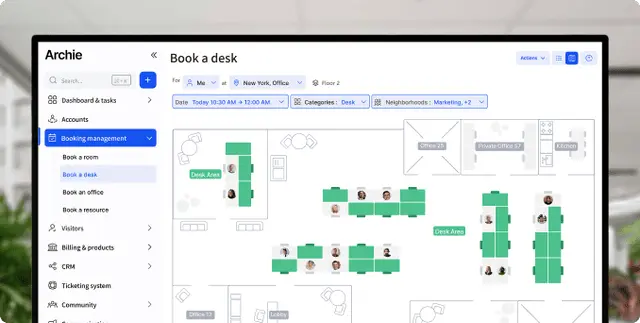
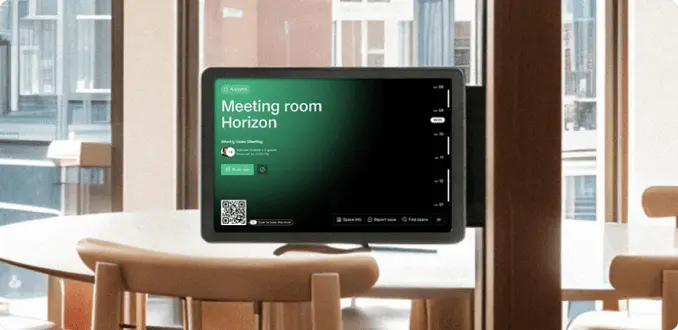

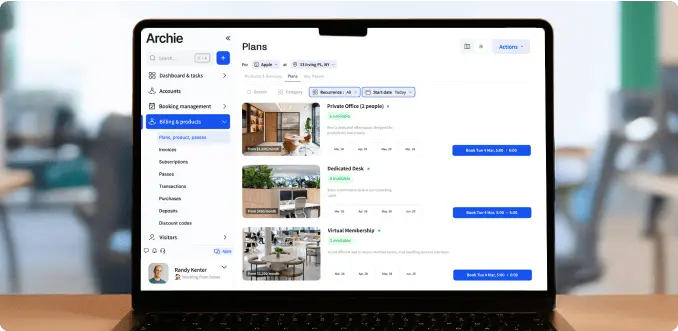
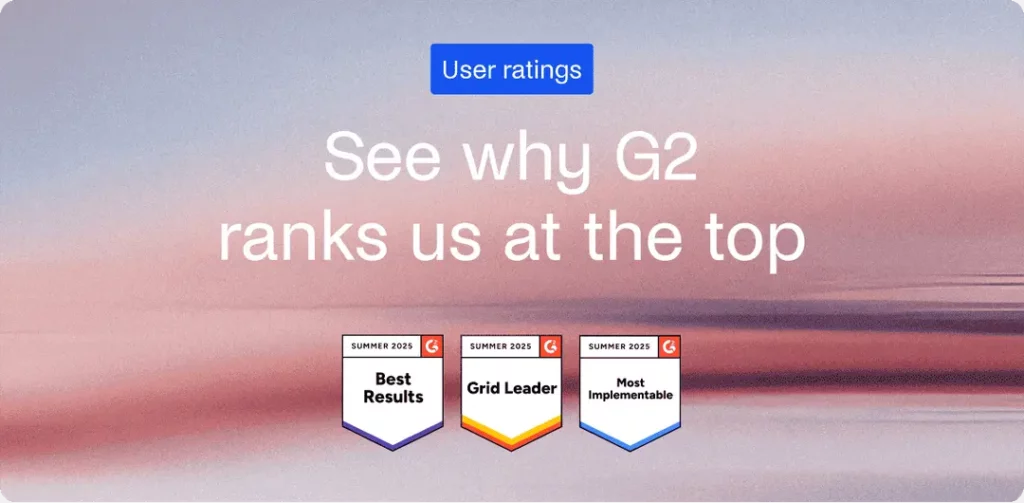
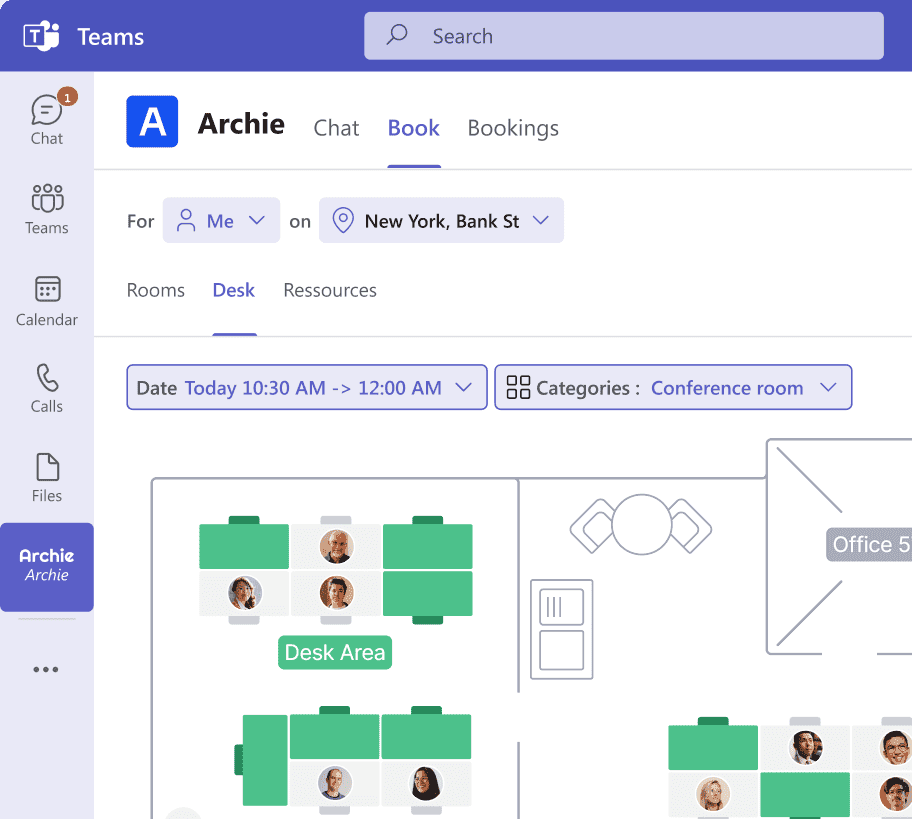
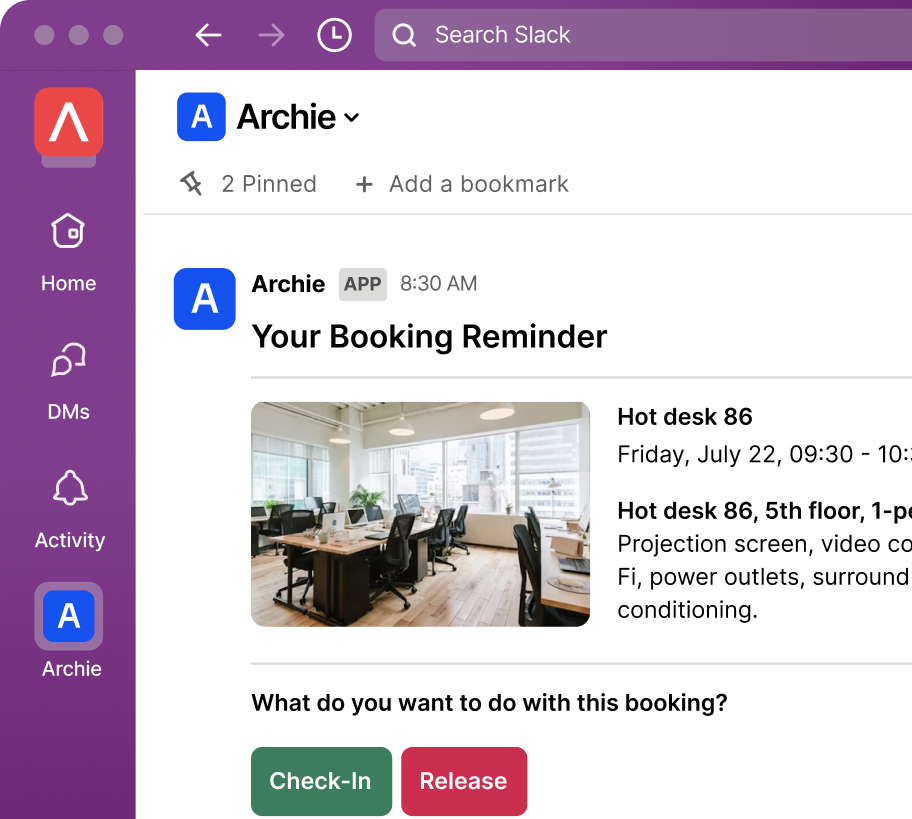
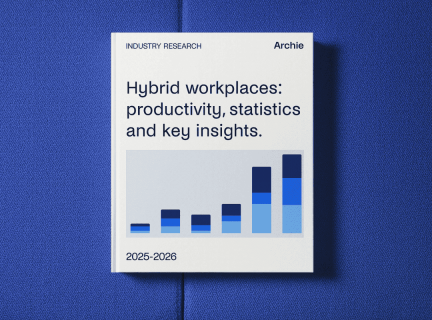

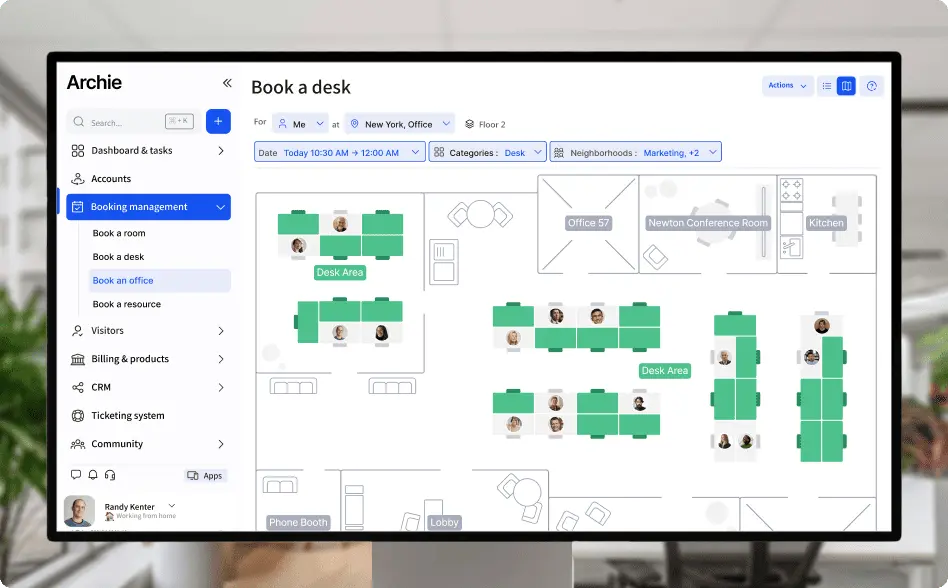
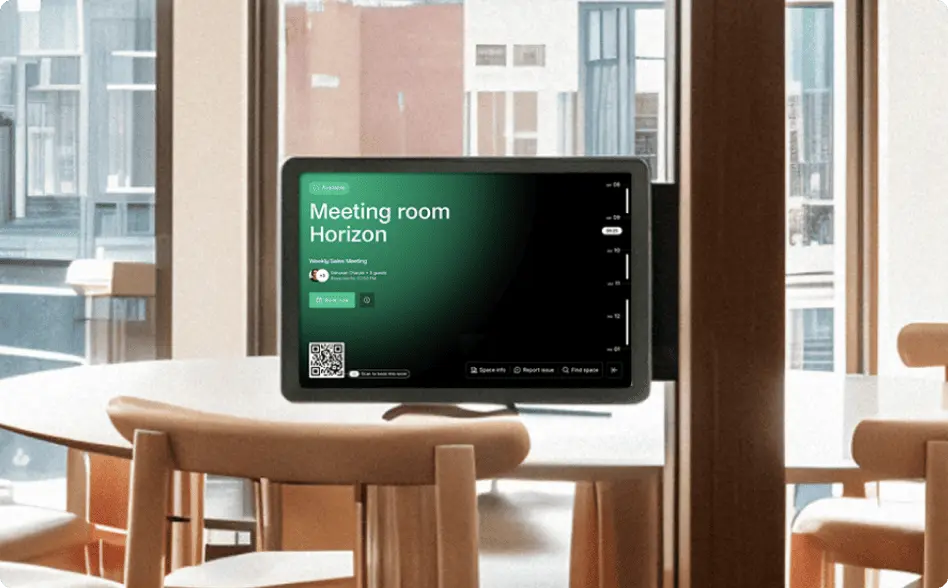
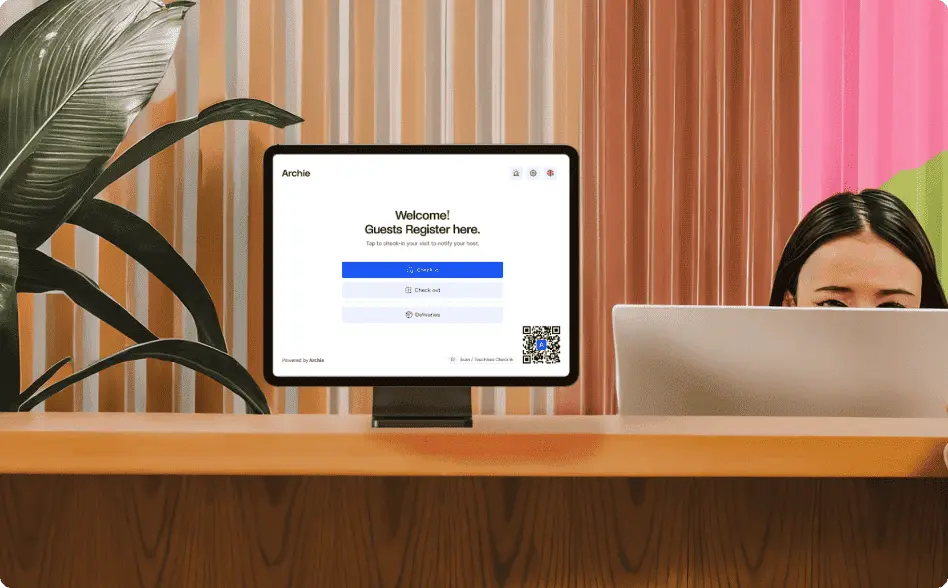
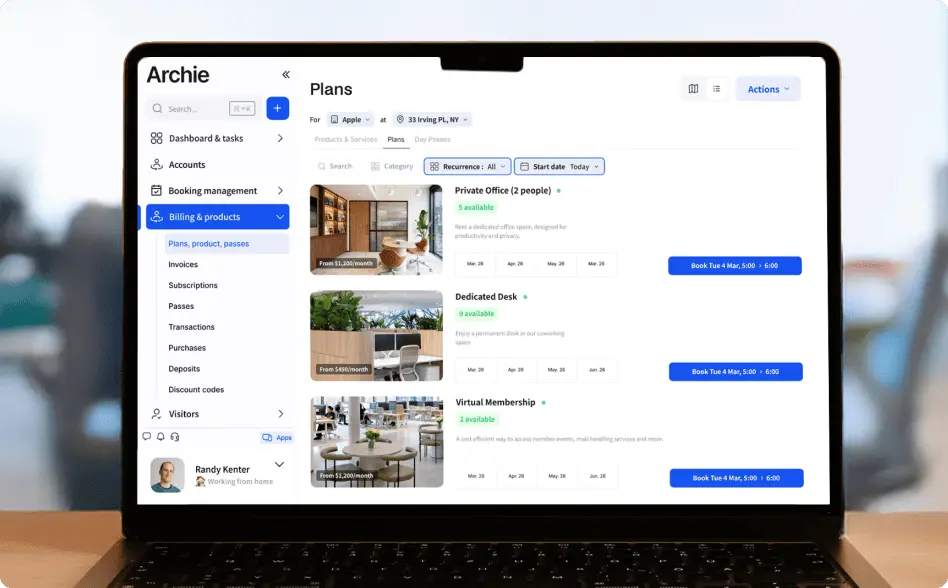





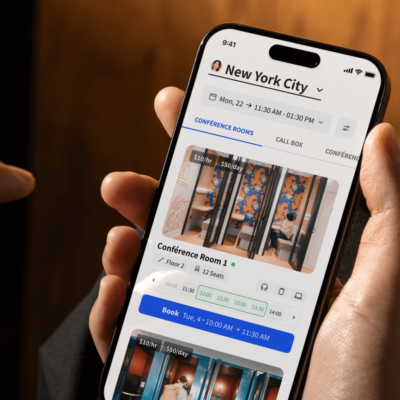

![38 Top Coworking Conferences and Events of 2026 [Confirmed] Top coworking conferences - cover image.](https://archieapp.co/blog/wp-content/uploads/2023/10/coworking-400x400.jpeg)
